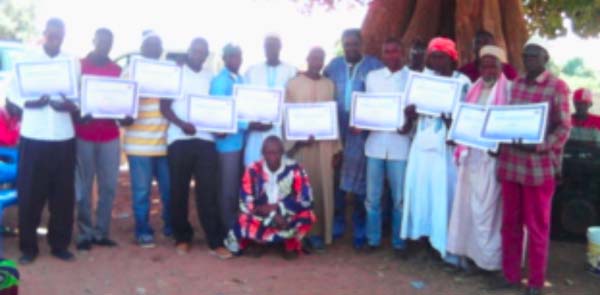
Addressing the award ceremony in Jarra Weligaraba on Sunday, the Governor of Lower River Region said the open defecation-free trials began in June 2014 in his region, with the assessment of forty-four communities out of which twenty-five of them gained open defecation-free status.
Recognising some other challenges in human health, he urged the remaining communities to join in consolidating the gain in hygiene in the region.
The Lower River regional health director, Momodou Lamin Manneh, stated that the communities concerned earned credit in the abandonment of open defecation, with the provision of latrines to all households, environmental cleanliness and personal hygiene.
He noted that his department is looking forward to realising the health benefits of the commitment on the side of the award communities as a further step.
Bolong Jobarteh, chief public health officer, pointed out that the Ministry of Health aims to encourage and sustain an open defecation-free society with the help of partner organisations, including UNICEF.
The certificates given to the communities in the LRR have brought in extra demand for them, to ensure that every adult uses a toilet and all waste be properly disposed of, which should be supported with regular hand-washing.
The director of Health Promotion and Education, Modou Njai, advised the beneficiary communities to do their best to retain the goal of the open defecation-free concept.
He noted that children should be encouraged and trained to get babies used to “waste seats”, to make the transition to the use of the toilets easier for them as they grow up.
On the dangers of open defecation, Mr Njai explained that human waste could cause serious ailments to people through the process of the food chain with animals.

